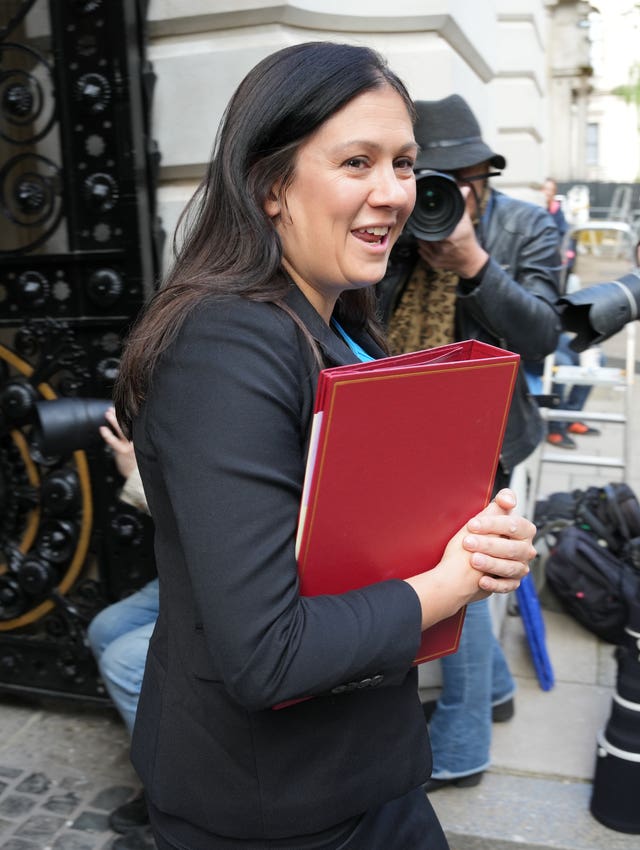Lisa Nandy challenges TV industry to create more opportunities outside London
The Culture Secretary urged the sector to employ more people from working-class backgrounds.

The Culture Secretary has challenged TV industry leaders to create more opportunities outside the capital in a keynote address at the Royal Television Society (RTS) London Conference.
Lisa Nandy also urged the sector to employ more people from working-class backgrounds and pointed to the success of shows made outside London, like Peaky Blinders, which often use local casts, crews and production companies to create jobs.
In a speech on Tuesday, Ms Nandy, 45, said: “For all of the efforts made by many of you in this room, it should shame us all that television is one of the most centralised and exclusive industries in the UK.
“Because who tells the story determines the story that is told.
“So I want to ask: if you aren’t commissioning content from every part of the country – towns and villages as well as major cities – why not?
“Talent is everywhere. Opportunity is not. And if you’ve moved jobs and people and content, but the heads of departments and commissioners are still in an office in London, do something about it.”
It comes after the previous government’s Culture, Media and Sport Committee inquiry launched an investigation into film and TV in July 2023 asking what needs to be done to maintain and enhance the UK as a global destination for production.
It concluded during the election that it was “deeply concerned about skills, working conditions, and the retention of staff in the industry” which “faces considerable uncertainty”.
Ms Nandy’s speech continued: “Frankly, if you don’t know why the film industry is so attracted to the beauty of Sunderland, or why the arts sector is buzzing in Bradford, or the potential to TV of the Welsh Valleys, it is most likely because you’ve never been there. And you have no right to call yourself a public service broadcaster.
“Because public service means serving the whole people, recognising their contribution and reflecting them in our national story.
“I know it isn’t easy. The costs are short term, the payoff is long term.
“But there is so much at stake and it is my belief that an industry that belongs to the nation is an industry that will not just survive but thrive.
“That is what I want to see. We will do everything we can to put rocket boosters under your efforts, but that effort in the first place belongs to you all.

“Through us doing our bit and you doing yours. With a new relationship based on respect for one another.
“A television industry that leads the world and is the pride of all of Britain. Thriving well into the latter half of this century. That is what we will build, together.”
Ms Nandy said the new Government “believes in public service broadcasting” and added “the next charter review has to ensure the BBC doesn’t just survive, but thrives for decades to come”.
In its 2024 manifesto the Labour Party committed to working “constructively with the BBC and our other public service broadcasters”, making culture and the arts more accessible and investing in the creative industries as part of its strategy.
Ms Nandy also encouraged the industry to showcase new voices, cultures and communities on screen to increase diversity on screen.
Also at the convention, co-chief executive of Netflix Ted Sarandos revealed that the streaming platform had signed a deal with Baby Reindeer creator Richard Gadd.
Elsewhere, former footballer David Beckham said he was “really excited” about a new Netflix documentary about his wife Victoria, which follows a docuseries about his life released last year.





